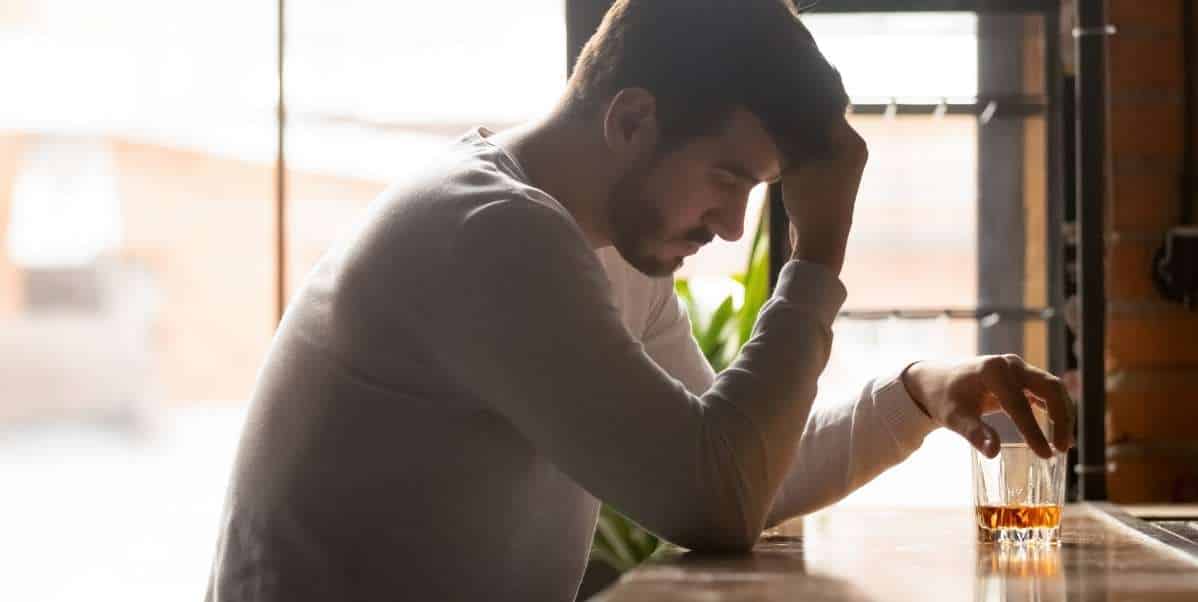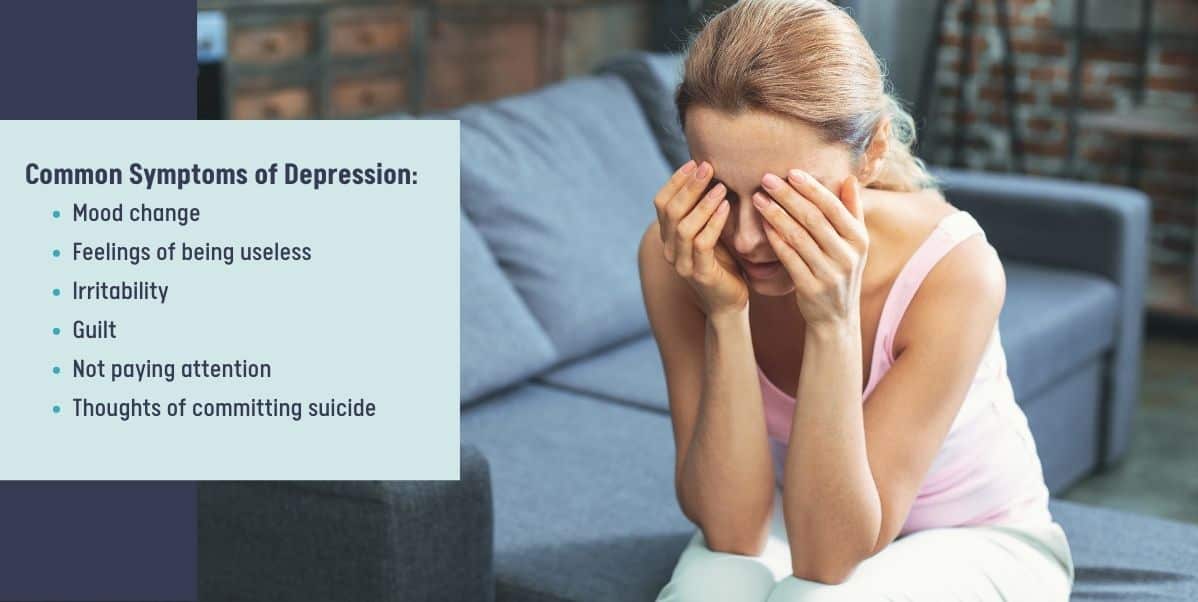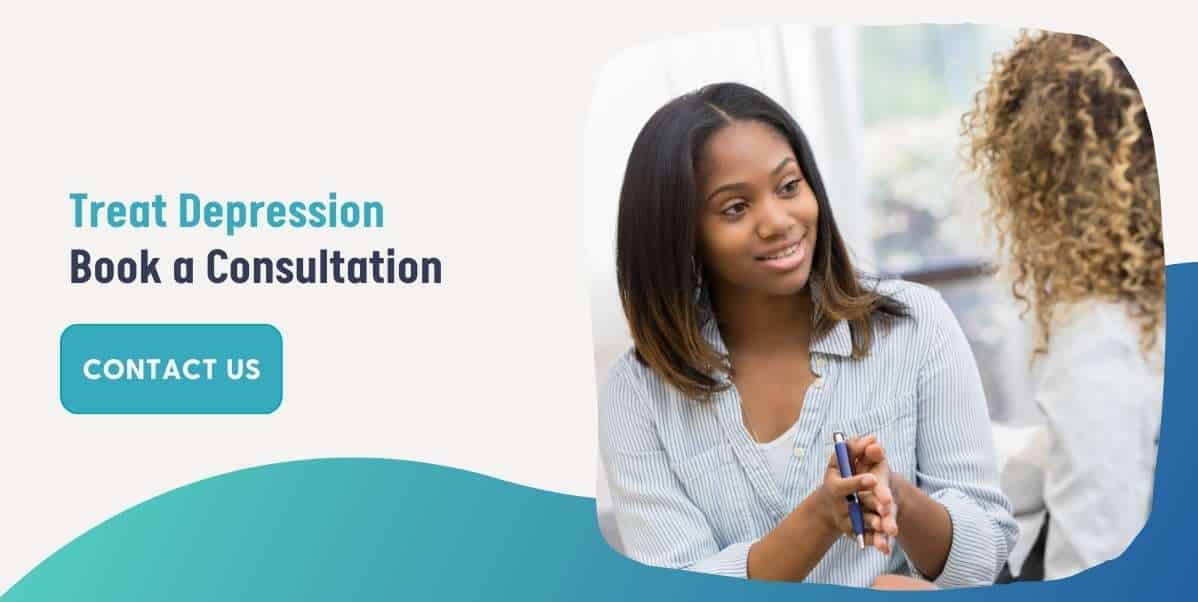
Depression is a severe mood disorder that causes sadness, low energy, and trouble looking forward to happiness or pleasure. Some people with depression feel mostly anxious, irritable, empty, or guilty, while others feel primarily sad.
Some people with depression sleep way too much, while others are always restless and can’t sleep. Depression can appear differently for different people, but it always affects the quality of life and makes it hard to complete daily tasks.
According to estimates by the National Institute of Health Sciences, one-third of people with major depression also have a problem with alcohol.
Depression and Addiction
Depression is a mental illness that often happens simultaneously with drug use. The connection between the two disorders goes both ways, meaning that people who abuse drugs are more likely to be depressed and vice versa.
People who are depressed may drink or use drugs to make themselves feel better or get away from guilt or hopelessness. But depressants like alcohol can make you feel more tired, making it harder to focus, make decisions, and react quickly.
Link Between Depression and Addiction
There is a strong link between depression and addiction, which is not a secret. People with a history of mental illness like depression are 25% more likely to drink alcohol, 69% more likely to use cocaine, and 94% more likely to smoke cigarettes, according to the National Bureau of Economic Research. When a person has both a mental illness and a problem with drugs, they are said to have a dual diagnosis or co-occurring disorder.
Mood disorders, especially major depressive disorder (MDD), bipolar disorder (BD), and substance use disorders (SUDs) happen together a lot. Between 20% and 70% of people with BD and between 10% and 30% of people with MDD have problems with how they use drugs. About 42% of people with BD also have SUD, and alcohol use disorder is the most common. Cannabis use disorder is the next most common, at about 20%.
Common Symptoms of Depression
A study published in the Journal of Affective Disorders in 2017 found that there may be as many as 52 symptoms of major depression. Therefore, depression can look different from person to person.
According to Eiko Fried, an associate professor in the department of clinical psychology at Leiden University in the Netherlands and the study’s author, two patients can have no symptoms in common and still be diagnosed with major depression.
Below are some of the most common signs of depression that can be used to make a diagnosis:
Mood Change
Depression can cause significant changes in mood, causing a person to feel low or hopeless. Symptoms can range from difficulty concentrating and loss of interest in activities to feelings of sadness and emptiness.
Feelings of being useless
Some people with depression feel like they have nothing to offer the world, that they’re a failure, or that others don’t care if they exist. These feelings may or may not be caused by something in real life (such as a breakup or job loss).
Irritability
People with depression may quickly get upset or frustrated, even over small or unimportant things. This usually has to do with a person feeling so stressed and tired that it’s hard to get through the day.
Guilt
Chemicals in the brain that are out of balance often cause depression. But people who are depressed may instead blame themselves for their symptoms. They’ll say, “I can’t do anything right,” and “I’m to blame for everything.”
Loss of Concentration
A depressed person may find it hard to remember things, focus on one thing, or make decisions. Getting tired, feeling like you don’t matter, or feeling “numb” can make it hard to make decisions. People may talk about specific dates or events, but you may not remember them a few minutes later.
Suicidal Thoughts
When a person is experiencing depression, it can lead to thoughts of suicide. These thoughts may range from fleeting negative ideas to detailed plans for taking one’s own life. It is important to take these thoughts seriously and seek help right away. The first step in finding help is speaking with your doctor or mental health professional about the feelings you are experiencing.

Alcoholism and Major Depression
Alcohol can make you feel euphoric and excited, instantly happier and more sure of yourself. However, these feelings don’t last because alcohol is a depressant. Alcohol affects the central nervous system (CNS) and the way the brain works, just like sedatives do. Still, a lot of Americans drink even when they are sad. The symptoms will get worse the more alcohol you drink. Depending on how drunk you are, you may lose your inhibitions and sense of right and wrong, become confused, or have mood swings, among other things.
No matter what you drink, it’s possible to abuse alcohol, and many people do. This is especially true when it’s used to treat yourself. Pouring yourself a glass of wine or cracking open a beer at the end of a long day may temporarily make you feel better because alcohol is a sedative. However, afterwards, it will make your feelings of depression worse and make them last longer. If you drink too much and too often, you may be more likely to get a major depressive disorder. Alcohol consumption can also make depression symptoms worse and put your physical and mental health at risk.
Getting Professional Help
Depression and addiction can have a serious impact on your physical and mental health. Therefore, if you are struggling with either condition, it is important to seek professional help as soon as possible.
Our team has extensive experience in a variety of mental health conditions, including depression, anxiety, bipolar disorder, post-traumatic stress disorder (PTSD), substance use disorders and more. We are committed to creating individualized treatment plans that target your specific needs and objectives.
We strive to stay up to date on the most advanced treatments available, including Transcranial Magnetic Stimulation Therapy (TMS). TMS is an FDA-approved, non-invasive treatment option for depression that has been proven to be safe and effective in clinical studies. To learn more about our TMS treatment, contact us today.


